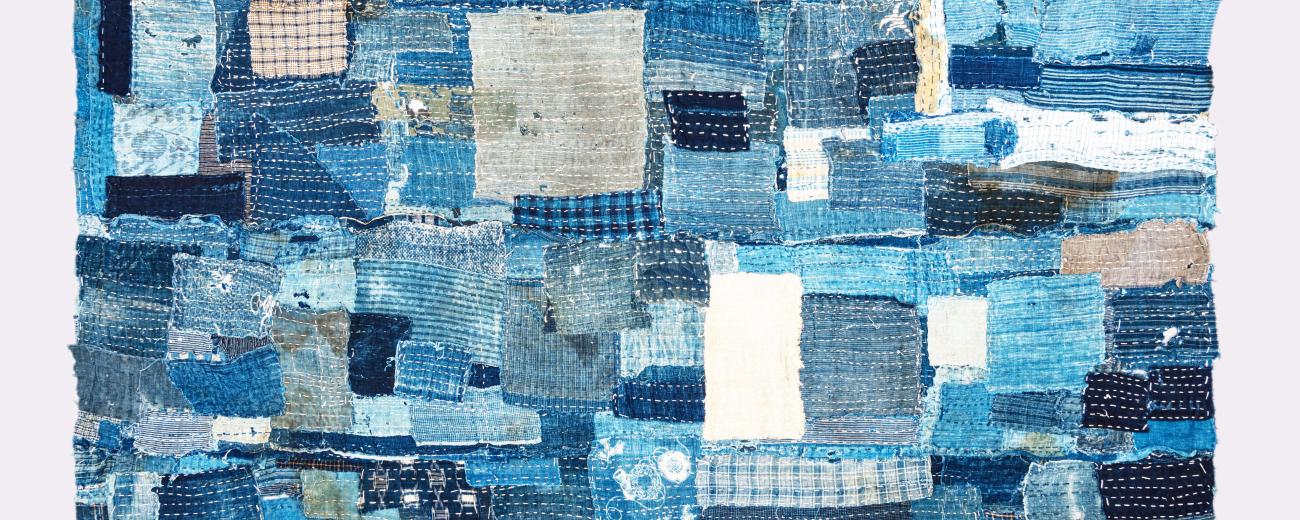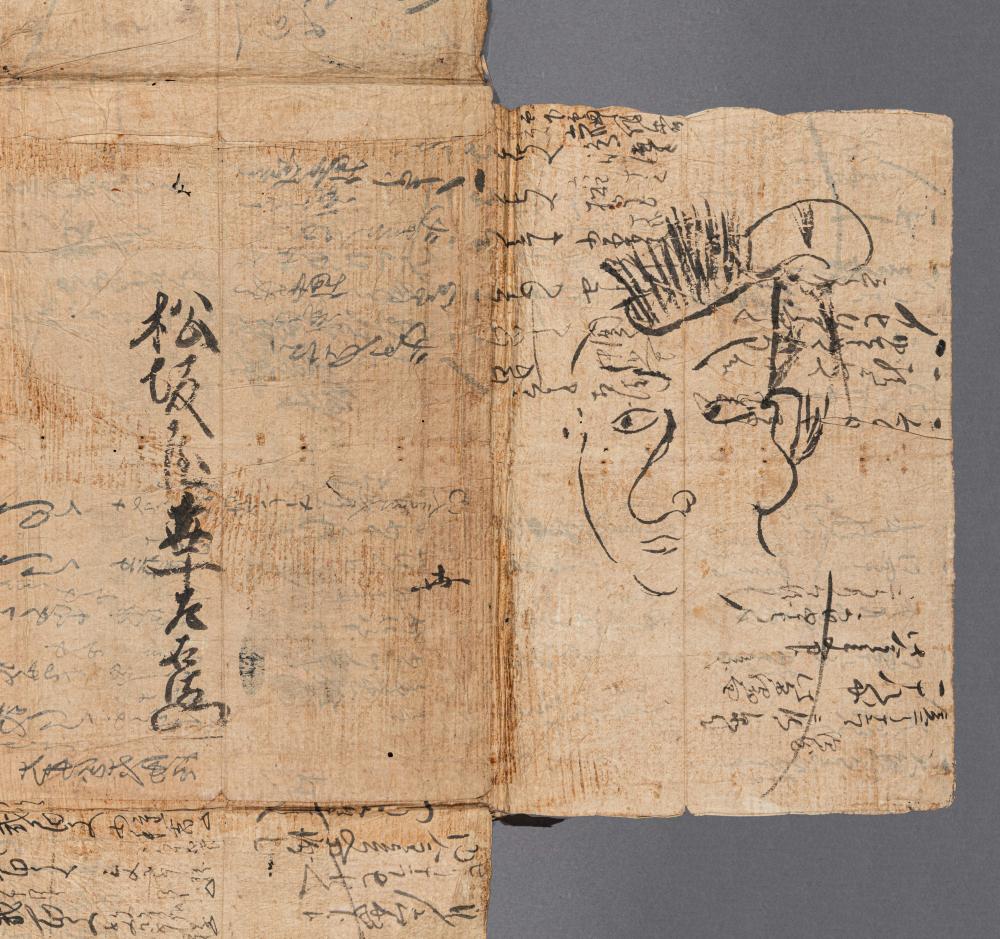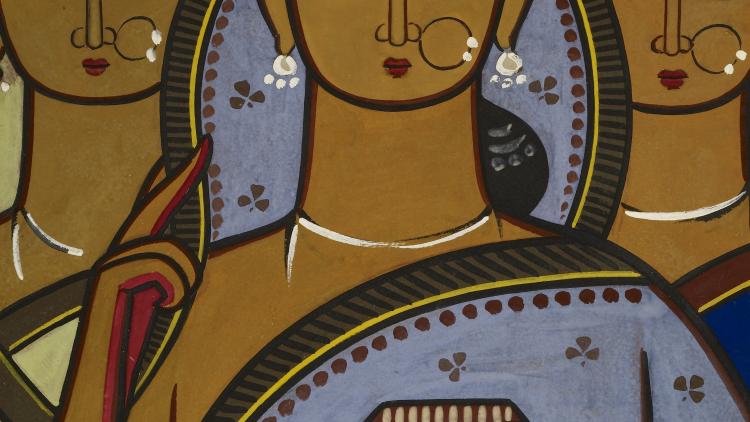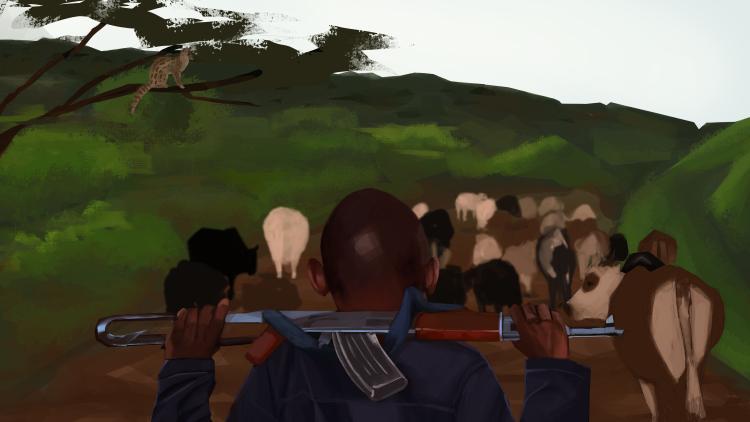
Japanese aesthetics of recycling

Key information
- Date
- to
- Venue
- Brunei Gallery, SOAS
- Event type
- Exhibition & Event highlights
About this event
The Brunei Gallery is delighted to present Japanese Aesthetics of Recycling a new exhibition highlighting the beauty of Japanese recycling, showcasing objects made of cotton, hemp, bast fibres, washi (handmade paper) and pottery.
Exhibiting over 100 objects from the Karun Thakar Collection - mostly dating from the Edo period (江戸時代, Edo jidai) or Tokugawa period (徳川時代, Tokugawa jidai) - the exhibition includes exquisite examples of ‘Boro’ and ‘sakiori’ textiles, washi and kin-tsugi or gin-tsugi pottery.
Boro (Japanese: ぼろ) is a class of Japanese textiles that have been mended or patched together. The term is derived from Japanese boroboro, meaning something tattered or repaired. Fashioned from worn clothing and ‘waste’ fabric to create 'Boro', the textile pieces have become very popular with collectors in Japan & throughout the world over the last 20 years. These pieces are often marketed as ‘abstract art’ in the Western context. They are in fact an important aspect of Japanese history and culture, showing the resilience and creativity shown by working people living in very harsh environment with very few resources.
Washi (handmade paper) was widely used in the Meiji & Showa period to make wrappings for valuable kimonos, tea storage bags, wrappers for documents as well as floor coverings and room dividers. Often old ledgers were recycled and layered to make these objects, persimmon paste was used to make them waterproof. Shifu garments will also be exhibited, these were woven using twisted and plaited paper yarn, farmers originally cut the pages of ancient account books in order to turn them into woven paper. The ink writing on the paper also remained visible in the finished fabric leaving an interesting speckled pattern.
Various examples of kin-tsugi or gin-tsugi “golden joinery” pottery will also be exhibited form The Heian period (平安時代, Heian jidai) 794 to 1185 to Edo period (江戸時代, Edo jidai) 1603 and 1867. Breakage and repairs were not disguised in these pots and were seen as rich part of the history of these objects. Yobi-tsugi pieces, which were constructed from different broken pots will also be on show.
This will be the fourth exhibition from the Karun Thakar collection at the Brunei Gallery, the exhibition will be curated by the collector.


